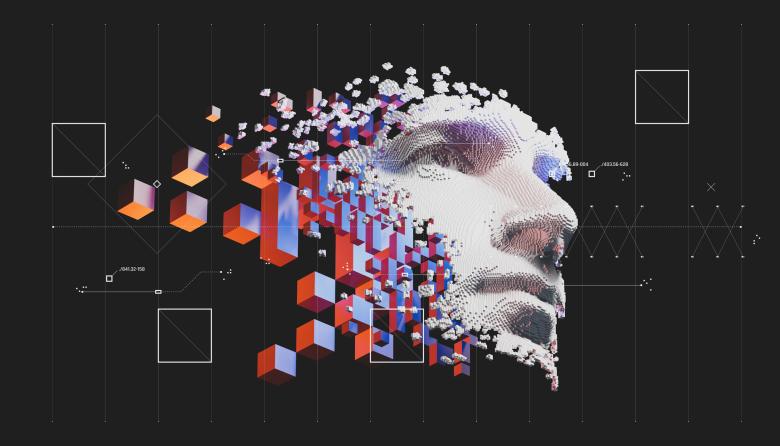Navigating the Digital Frontier
Artificial Intelligence (AI) has quickly moved from the realm of research labs into everyday life, influencing industries across the board. To that extent, public administration can’t be an exception. AI is reshaping the way Governments interact with citizens, bringing a new perspective and customer service culture. By integrating AI into citizen services, governments around the world can significantly enhance transparency, efficiency, and overall service quality, addressing the growing demand for faster, efficient and citizen-centric services.
AI is revolutionizing public services, streamlining processes and boosting transparency to deliver smarter, more efficient government interactions.
What are AI-Driven Citizen Services?
AI-driven citizen services refer to the utilization of advanced technologies such as Natural Language Processing (NLP), Machine Learning (ML), Robotic Process Automation (RPA) and Computer Vision, to streamline public administration’s operations and improve citizen’s interaction, service quality and customer service experience, overall. For example, most Public Administration bodies, spend countless resources (man-days and equipment) to process paper documentation and manually entering data into back-office systems and databases. Many back-office functions keep relying on paper documentation that needs to be manually digitized. Considering the existing outdated IT systems and the lack of modern solutions across the vast majority of Public Administration bodies, it can lead to efficiency bottlenecks. Nowadays, implementing a combination of NLP, RPA and Computer Vision is becoming the norm. Utilizing such tools can lead to improved efficiency and cost savings, as the automation of repetitive tasks will help public employees to focus on other - more strategic - responsibilities, and will enhance accessibility and convenience, as 24/7 support can make services available outside working hours.
Enhancing Transparency & Efficiency
Transparency is one of the most important aspects of good governance. Citizens tend to question the decisions made by the Public Administration, feeling there is a lack transparency to the data processed and procedures followed and would like to have a better understanding of how decisions are made. AI can play a crucial role in promoting transparency by making data more understandable and accessible to citizens. AI’s ability to process and analyze large datasets can enhance open data initiatives. Public Administration bodies can exploit the use of AI to analyse, organize, and share data in ways that are more accessible to the public, promoting an open government environment where citizens can easily access the information they need. This not only increases transparency but also helps citizens to gain their trust in the public administration and make informed decisions based on reliable data.
Efficiency is another area where AI can have a huge impact on public administration. Many public administration procedures are slow, requiring tons of paper documentation, often due to old and outdated systems and complex legislation framework. AI-driven solutions can help optimize these by automating tasks, reducing human error, and providing predictive insights that enable better resource allocation and data-driven decisions. This can lead to better policy outcomes and more responsive public services. For instance, e-EFKA and OPEKA would be able to identify vulnerable social groups that need help more quickly and accurately, ensuring that proper assistance would be provided in a timely manner.
Challenges and Considerations
While AI-driven services offer numerous benefits, its integration into public administration also raises challenges that need to be addressed such as Data Privacy, Accountability and Ethical related considerations.
AI systems require access to huge amounts of data, raising concerns about how personal information is collected, stored, and used. Governments must ensure that strong privacy regulations are in place and that AI systems comply with the GDPR and implement safeguards against data breaches and misuse, operating in a transparent way. The use of AI in public administration also raises ethical questions about accountability, decision-making, and the current and future role of humans in governance. Establishing ethical and clear guidelines about AI accountability and human oversight mechanisms is essential to ensure responsible AI deployment.
Other considerations include areas such as Skill gaps and training needed as implementing AI-driven services necessitates a skilled workforce capable of managing and maintaining AI systems and of course the necessary infrastructure and equipment, which can be costly.
The Future of AI in Public Administration
The future of AI-driven citizen services holds immense potential for transforming public administration. As AI technology continues to evolve, it will likely play an even more significant role in improving the efficiency, transparency, and responsiveness of governance. From smart cities that leverage AI to manage resources and infrastructure, to AI-driven predictive analytics that help Government to anticipate and respond to crises, the possibilities are immense.
However, the successful integration of AI into public administration will depend on governments’ ability to address the practical and ethical challenges associated with its deployment. This includes investing in training, establishing robust governance frameworks for proper and ethical AI use, and ensuring that AI systems are transparent, accountable, fair and fully aligned and complied with the GDPR.
AI-driven citizen services represent a transformative approach to public administration, offering significant improvements in transparency, efficiency, and service quality. By leveraging AI technologies, governments can provide more personalized, accessible, and responsive services to their citizens. However, the successful integration of AI requires addressing challenges related to data privacy, bias, ethics, and infrastructure. With careful planning and responsible implementation, AI has the potential to become a greatly useful tool to the way public services are delivered, benefiting both governments and citizens by improving their life quality.


